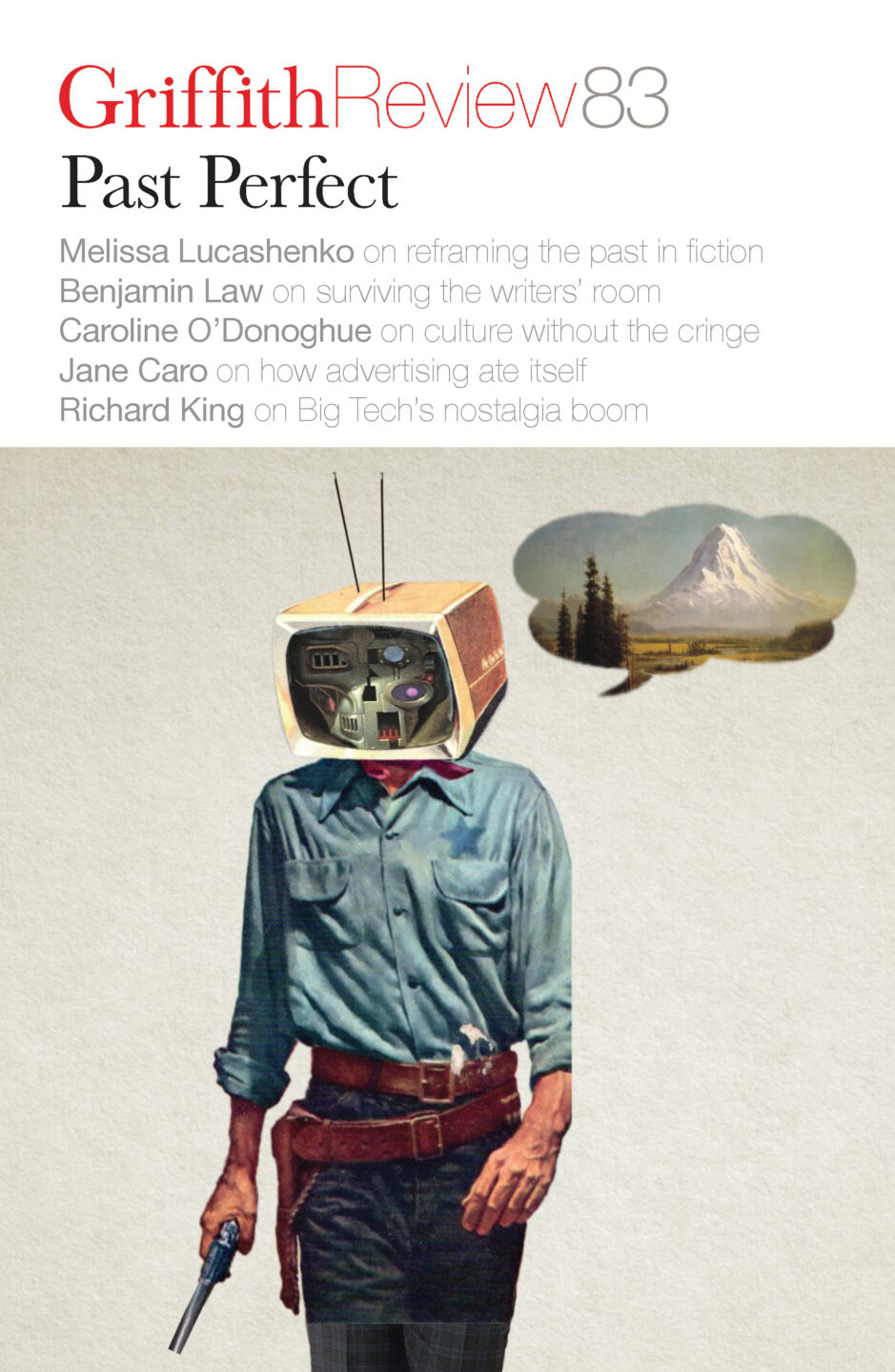Featured in

- Published 20240206
- ISBN: 978-1-922212-92-4
- Extent: 204pp
- Paperback, ePub, PDF, Kindle compatible

Already a subscriber? Sign in here
If you are an educator or student wishing to access content for study purposes please contact us at griffithreview@griffith.edu.au
Share article
More from author

Björk in concert
FictionThe wind feels strange on his face. He hasn’t stepped outside in too long. He hesitates in the doorway. He really doesn’t have time for this. He needs to write that last chapter. He needs to finish what he has promised. What separates humans from everything else is our urge to create. He turns back towards his computer but then he is outside and locking the door and it feels like he has no agency over this. His body wants to go for a walk and so he must walk. He catches a glimpse of something bright poking up through the mulch at the base of a tree. A mushroom. Then suddenly they all come into focus. Mushrooms everywhere. Mushrooms on tree trunks like little shelves for fairy books, mushrooms in the mud and mushrooms in among the grass. There are even little net-like things around red stalks. Weird Cronenberg mushrooms, half fungus, half machine.
More from this edition

From anchor to weapon
Non-fictionIn 1930s Germany, the slogan ‘blood and soil’ was most prominently promulgated by the Reich Ministry of Food and Agriculture, which positioned itself not merely as an administrator but a kind of advocate-guardian of the soil and its workers. In 1930, Adolf Hitler recruited Richard Walther Darré, then a leading blood and soil theorist, to the Nazi Party. On seizing power in 1933, Hitler appointed Darré Reichsminister of Agriculture, a role he occupied until 1942. Recently, for reasons that are unclear but politically alarming, Darré’s works on blood and soil have been translated and republished in English to some fanfare.

Time plays tricks
IntroductionTen years ago, the late, great cultural theorist Mark Fisher posited that our ‘montaging of earlier eras’ had reached such fever pitch that we no longer even noticed our submersion in a sea of bygones. And sitting alongside this purported cultural inertia are our increasingly divergent attitudes towards history – the far-right impulse to romanticise the past, the far-left desire to remedy its wrongs – and how they inflect our politics.

The fall of the madmen
Non-fictionThe problem with a fear-based workplace – and indeed world – is that caution and compliance are not compatible with creativity. Creativity searches for the things that have never been done before, on which, by definition, there is as yet no data. Scott Nowell argues that the obsession with data has made us lose faith in our own instincts, so it’s not surprising that creativity is not valued the way it once was. And the source of creativity has shifted to the consumers themselves.